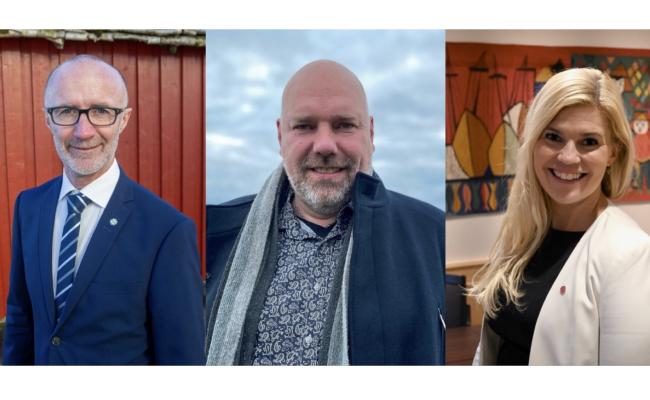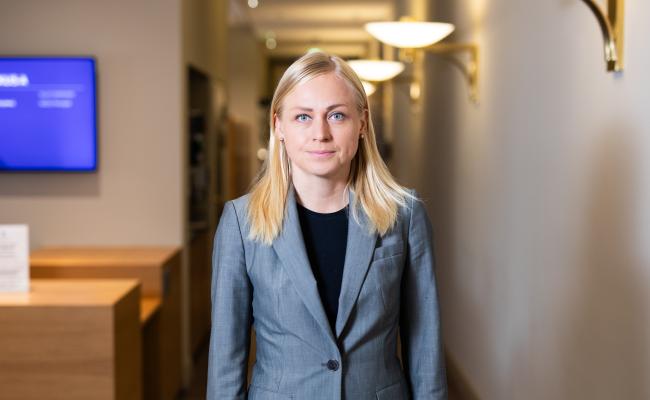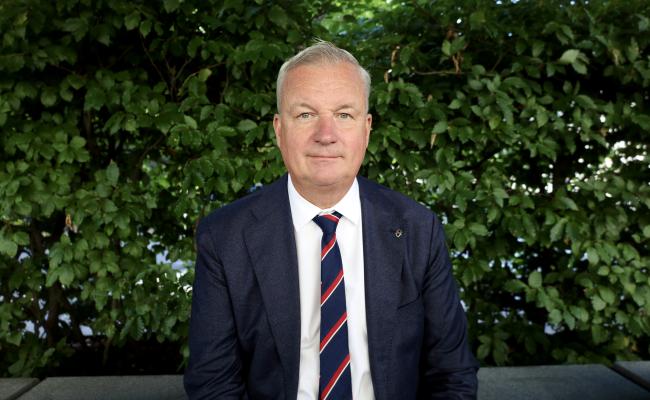Finland Welcomes New EU Commissioner: Focus On Regions Bordering Russia
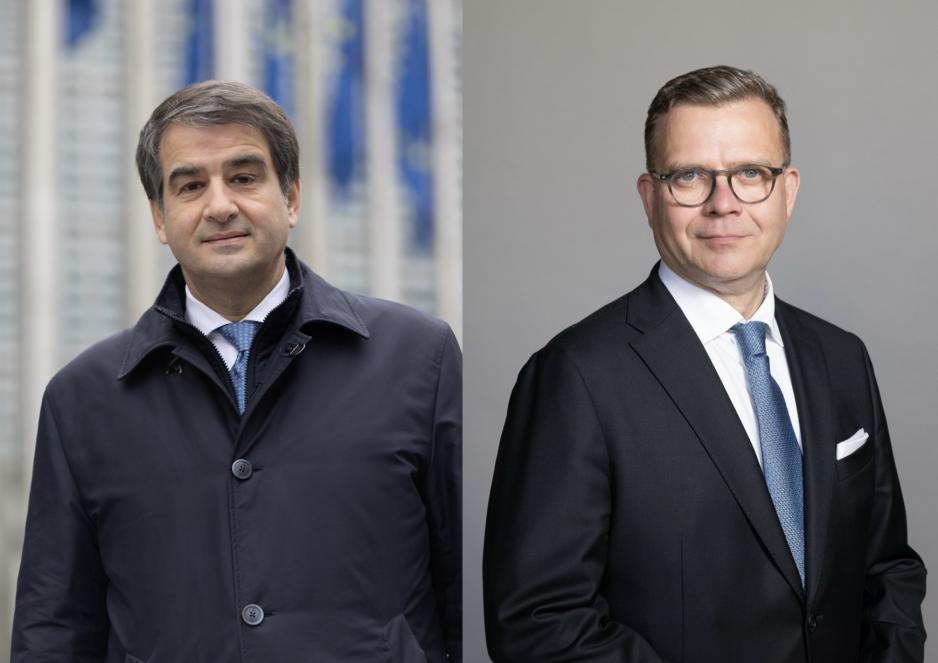
Raffaele Fitto, the European Commission's Executive Vice-President for Cohesion and Reforms, is now in Finland by invitation from the Finnish Prime Minister Petteri Orpo. Italian Fitto (Fdl) took office in November and is responsible for ensuring that the EU continues to support reforms and investments that directly contribute to strengthening European growth. (Photo: Aurore Martignoni/EU; Lauri Heikkinen/the Finnish Government)
The European Commission Executive Vice-President, Raffaele Fitto, is visiting Finland this week. "We will discuss the situation in Eastern and Northern Finland and ways to boost vitality," says Petteri Orpo, the Finnish Prime Minister.
Raffaele Fitto, the EU Commission's Executive Vice-President for Cohesion and Reforms, is in Finland from Wednesday to Friday, informs the Finnish Government.
Discussions about the EU's upcoming multiannual financial framework, the situation at Finland's border with Russia, and the reform of the union's cohesion policy are at the top of the agenda.
"The EU’s next multiannual financial framework must take into account the changed geopolitical situation in our neighbourhood and its diverse impacts on Finland. Commissioner Fitto and I will be discussing the situations in Eastern and Northern Finland and ways to boost vitality," says the Finnish Prime Minister Petteri Orpo (National Coalition Party).
The Finnish Government is working on designing programs to strengthen activity and security in the two border regions. The program drafts were up for comment in November, and the final proposals will likely be presented this year.
"Russia’s illegal war of aggression in Ukraine has brought new challenges to our eastern border regions, and we need special funding from the EU to address them. The EU should modernise its cohesion policy in a way that promotes strategic investments, including defense,” states Orpo.
Today, Thursday, Fitto will gain more insight into issues surrounding the border with Russia with a visit to Lappeenranta in southeastern Finland.
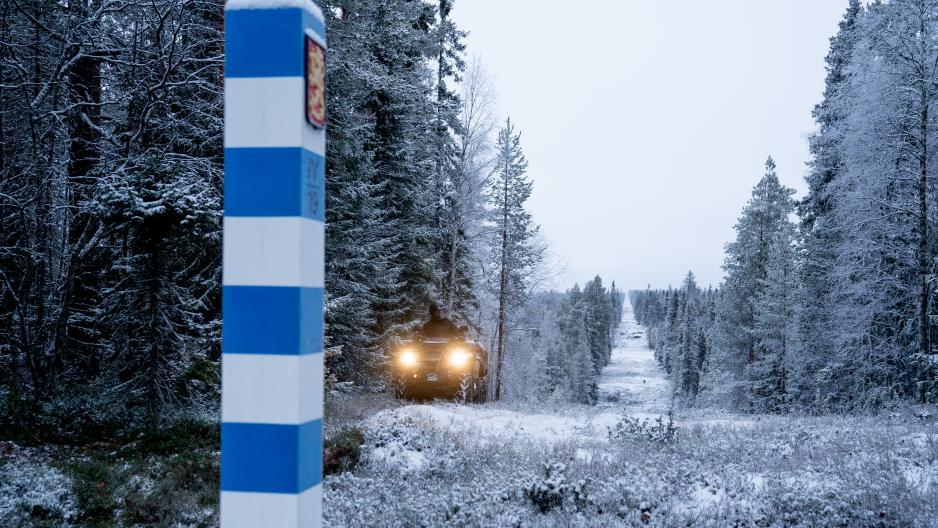
Patrol at the border with Russia in North Ostrobothnia, Northern Finland. (Photo: the Finnish Border Guard)
Cooperation in the face of Kreml – and the White House
In addition to Orpo, Fitto will meet with, among others, Finland’s President Alexander Stubb (National Coalition Party) and the ministers of European affairs and ownership steering, economic affairs, as well as agriculture and forestry, in Helsinki.
Other relevant topics for the Commissioner's visit are the Russian shadow fleet as a problem affecting the union as a whole, as well as the need to tighten sanctions against Moscow and lower the oil price cap, according to the Finnish government.
The new Trump administration in the US will likely also be a matter of debate.
"Last night, Alexander Stubb and I had a good call with our Nordic colleagues: Sweden's PM Ulf Kristersson, Norway's PM Jonas Gahr Støre, Denmark's PM Mette Frederiksen and Iceland's PM Kristrún Frostadóttir. We discussed the new US administration and future cooperation among the Nordic countries, in Europe and within the Transatlantic alliance,” Orpo stated on X on Tuesday.
The Finnish foreign and security policy is led by the president in collaboration with the government.
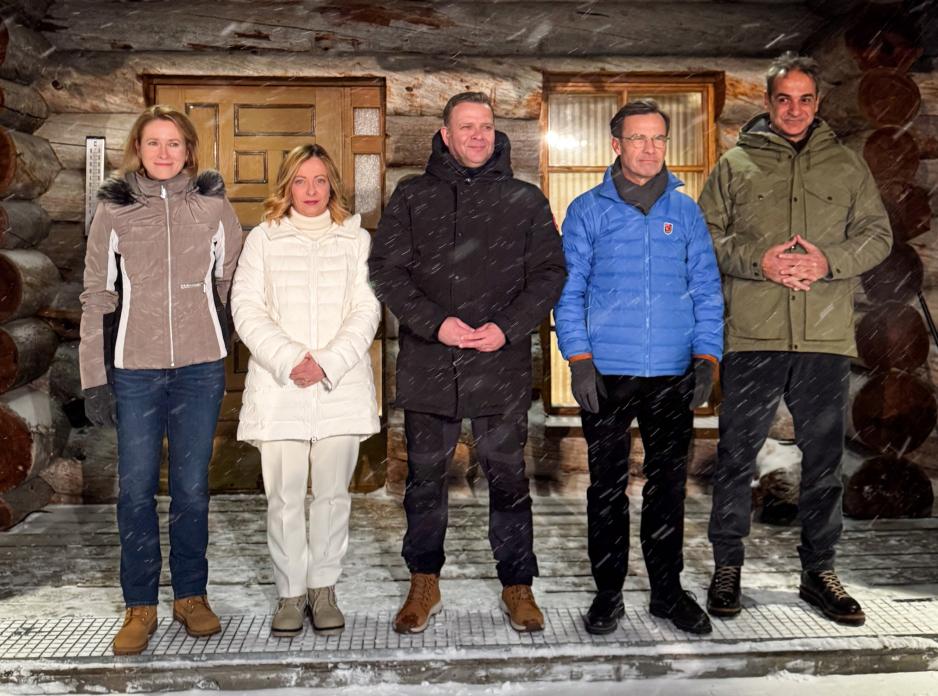
Gathered in Finnish Lapland at the end of 2024: the EU High Representative for Foreign Affairs and Security Policy, Kaja Kallas; Italy's Prime Minister, Giorgia Meloni; Finland's Prime Minister, Petteri Orpo; Sweden's Prime Minister, Ulf Kristersson, and Greece's Prime Minister, Kyriakos Mitsotakis. (Photo: the EU)
North-South summit in Lapland
The EU Commission's vice president's visit follows a recent summit for EU leaders in Northern Finland.
On December 21st-22nd, Prime Minister Orpo welcomed Kaja Kallas, the High Representative for Foreign Affairs and Security Policy and Vice-President of the EU Commission, as well as the prime ministers of Sweden, Italy, and Greece, in Saariselkä, Lapland.
The meeting mainly focused on Europe's security, defense, and preparedness, as well as migration, the instrumentalization of migrants, and border security.
“Regarding the security situation in the north, I have stressed over and over again the fact that Finland has a 1,340-kilometer-long land border with Russia, which is an external EU and NATO border. It is longer than the road from Brussels to Rome,” Orpo said on the eve of the meeting, continuing:
“Securing this border and responding to challenges such as instrumentalized migration is an existential question for Finland, for other EU members and for NATO allies.”
Along with his European colleagues in December, the Finnish PM also emphasized the importance of maintaining support for Ukraine – and stated that "Europe's defense must be strengthened by all possible means. We must explore all financial options."
"Necessary to prevent war"
“Russia poses a direct threat to European security, but security is composed of different elements and they differ in the East, South, North and West. We can deal with these issues if we act together,” said the EU High Representative Kallas (Estonian Reform Party) in Lapland.
By this, she referred to both hybrid threat activities below the threshold of armed conflict and military-oriented threats. Examples of the latter include Krem's rhetorical nuclear sable rattling and statements that Russia may strike military targets in Western countries that provide weapons support to Ukraine.
“We can tackle [hard, ed. note] security challenges by investing more in defense and we have now discussed how we can do that. It is, of course, not easy. But we need to shoulder more responsibility and find ways to do this. Because to prevent war, we really must do more on defense,” Kallas stated.
Regarding migration and border security, she made the following point:
“When people are asked what they like about the European Union, the first thing they say is “the free movement of people.” But we cannot be borderless both inside and outside. This means that we need to protect our external borders.”



